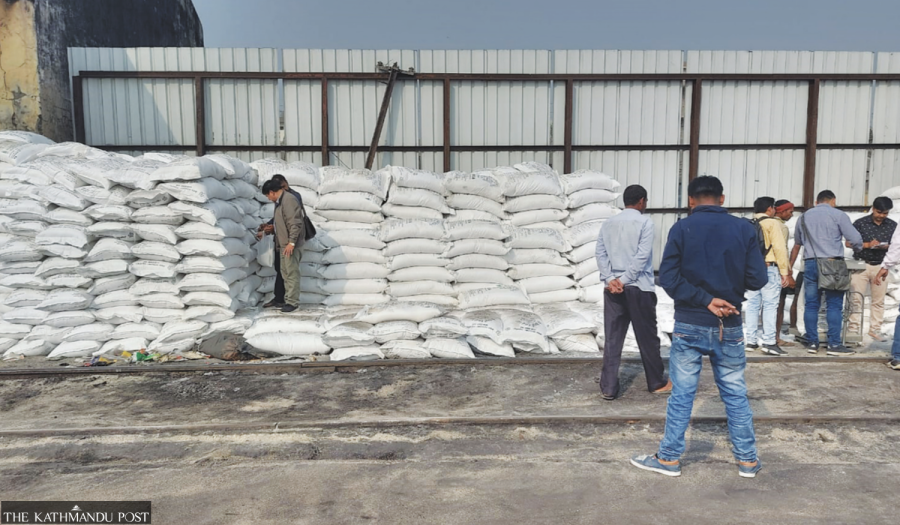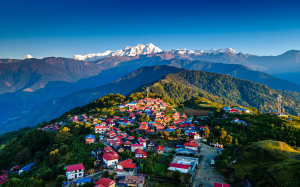Money
Cooperatives halt fertiliser supply in paddy season
Most cooperatives in Parsa say quotas allocated to them are small, which sows seeds of quarrel with the farmers and local politicians.
Shankar Acharya
A number of cooperatives in Birgunj Metropolitan City have stopped supplying chemical fertiliser, which has caused panic among farmers in the peak paddy transplantation season.
Paddy transplantation has picked up in the Tarai region due to ample rainfall of late. Monsoon hit the country on June 10 this, three days before its usual onset, allowing farmers to transplant the crop early.
Two government supply arms—the Agriculture Inputs Company and the Salt Trading Corporation—distribute chemical fertilisers to farmers through cooperatives.
Durga Prasad Pandey, chief of the Agriculture Inputs Company regional office in Birgunj, said there are rumours about a shortage of fertilisers in various wards of the Birgunj metropolitan area.
“But the reality is that cooperatives have stopped supplying fertilisers.”
Pandey said that the eight wards of the metropolitan city, which are all rural areas, have yet to start buying diammonium phosphate (DAP), the world's most widely used phosphorus fertiliser, alongside urea and potash.
In the last few years, provinces across the country have determined their fertiliser quotas based on the size of arable land and the number of farmers in a particular district.
Once the provincial ministry fixes the quota, the district's Agriculture Knowledge Centre further parcels it out for municipalities and rural municipalities.
"In Birgunj, fertiliser quotas for cooperatives are allotted by the municipal authority,” said Pandey. Four different consignments of import that arrived in Birgunj have been set aside accordingly. But cooperatives are not interested in retailing them to the wards or farmers, he added.
Since June 2, several international companies that won the contract have been supplying chemical fertilisers to Nepal.
Aditya Birla Group, an Indian multinational conglomerate, has supplied 20,000 tonnes of DAP.
Likewise, Indian Potash Limited has supplied 25,000 tonnes of DAP and 10,000 tonnes of potash, and Sun International has supplied 30,000 tonnes of urea.
Pandey said the Indian Potash Limited is also supplying another 30,000 tonnes of urea, which arrived at Raxaul railway station on Monday.
He said another consignment of 25,000 tonnes of DAP has arrived in Kolkata port and will be dispatched to Nepal soon. "After this lot arrives in Nepal, we will fix another quota."
According to Pandey, there is currently no shortage of chemical fertilisers.
The warehouse of the Agriculture Inputs Company has 9,172 tonnes of urea, 2,168 tonnes of DAP and 2,600 tonnes of potash in stock for the Madhesh province.
"As many consignments are coming soon, particularly targeted for the paddy transplantation season, there will be no shortage this year,” said Pandey.
The eight districts of Madhesh receive 30 percent of the total chemical fertiliser imports based on their acreage.
While the suppliers say they have enough fertiliser in stock, the cooperatives say that’s not enough to meet farmers' demand.
A number of cooperatives said that they have stopped supplying fertilisers to the wards arguing that the allocated quotas pale in comparison to the demand. This has been a headache for them as farmers frequently quarrel with them.
Shankar Prasad Chaurasiya, chairman of the Janabadi Agriculture Cooperatives in Nagawa, said that the quotas allocated by Salt Trading Corporation and Agriculture Inputs Company are small. "We have huge wards, but the allotment is small. In this situation, managing the distribution is difficult. So we decided to stop supplying fertilisers altogether."
Hari Narayan Sah, chairman of the Ashok Vinayak Cooperatives in Laxmanwa, Birgunj, said that each consignment brings them 72 tonnes of DAP and 130 tonnes of urea. “That's too little to meet the farmers' demand,” he said. "We have to buy the fertiliser and sell it to the farmers. We are serving them, but the farmers and politicians often chide us."
Asharfi Sah, president of the Parsa Farmers’ Association, said the quota should be increased to prevent unnecessary hassles. "If the cooperatives demand 100 sacks, they get 10 sacks."
If the cooperatives stopped distributing fertilisers, it might cause havoc, he warned.
"The cooperatives are in trouble because they don't get enough fertiliser to meet their demand. The best alternative is to increase the quota immediately."
According to the Ministry of Agriculture and Livestock Development, the actual demand for chemical fertilisers hovers around 520,000 tonnes annually.
The country requires 520,000 tonnes—310,000 tonnes of urea, 190,000 tonnes of DAP and 20,000 tonnes of potash.




 16.98°C Kathmandu
16.98°C Kathmandu














